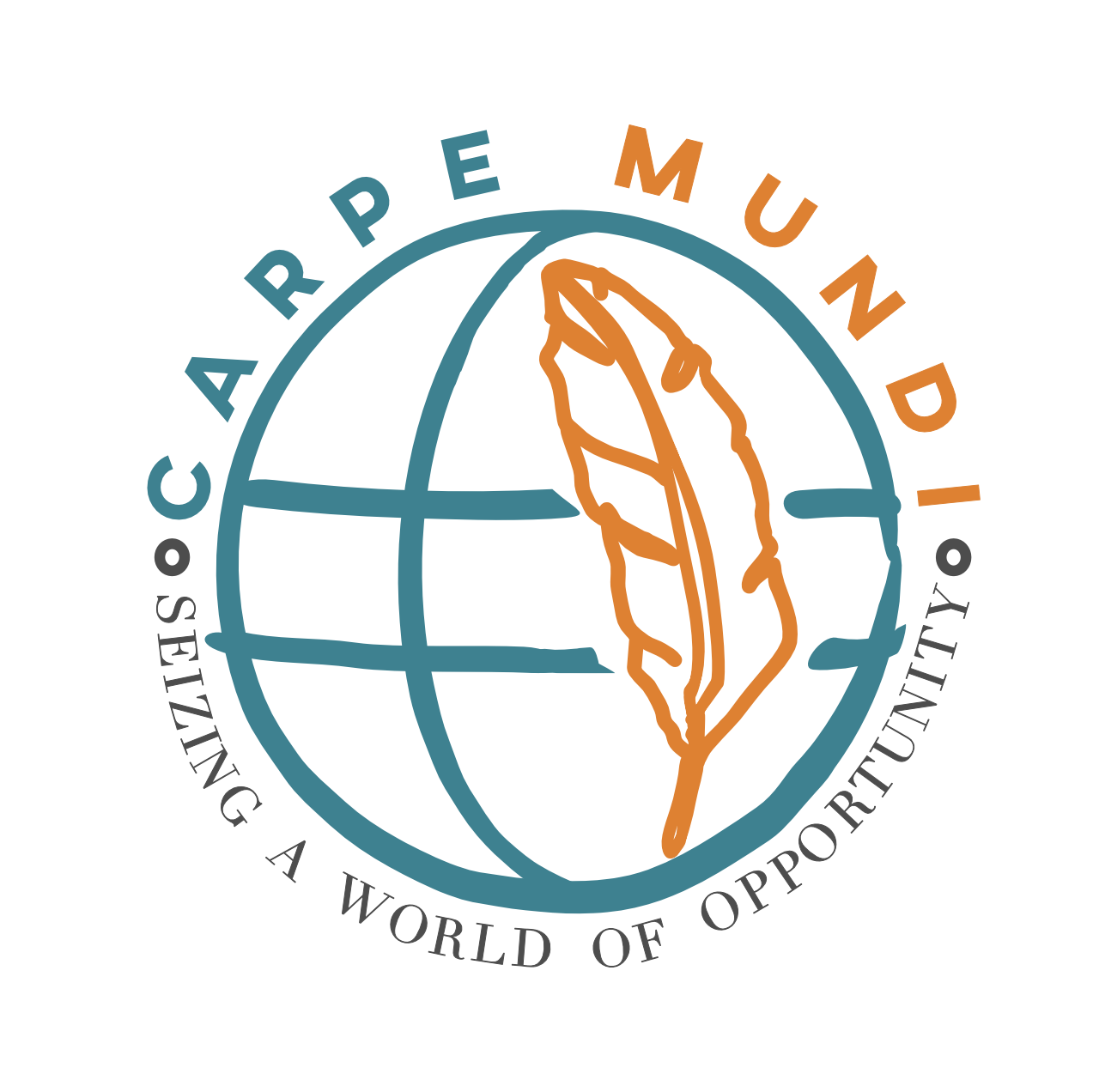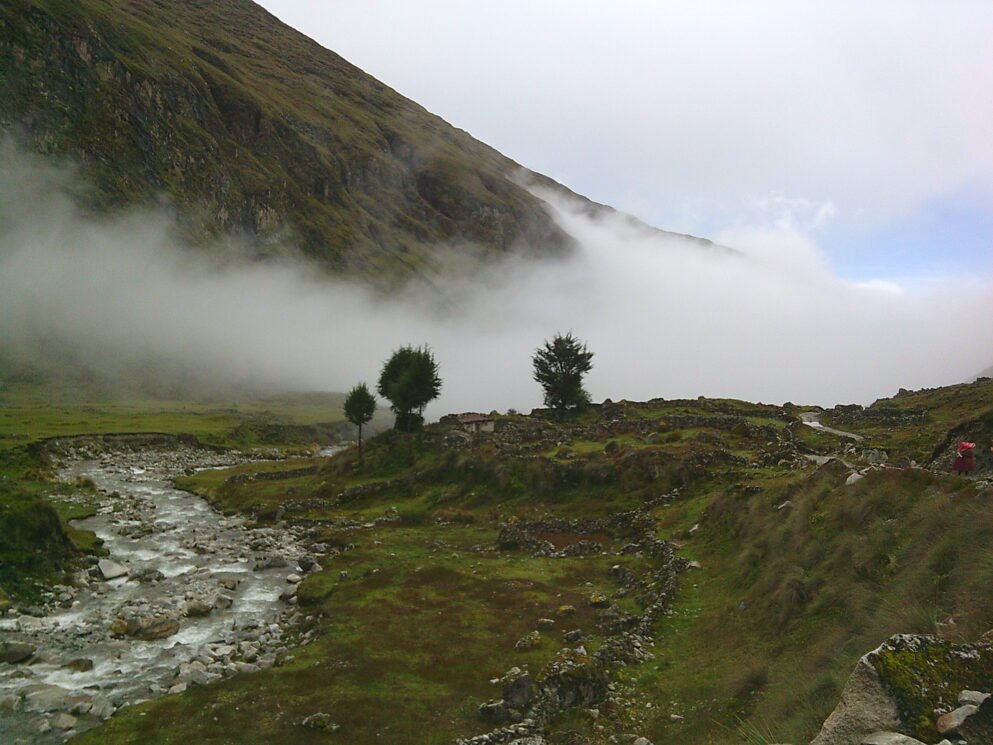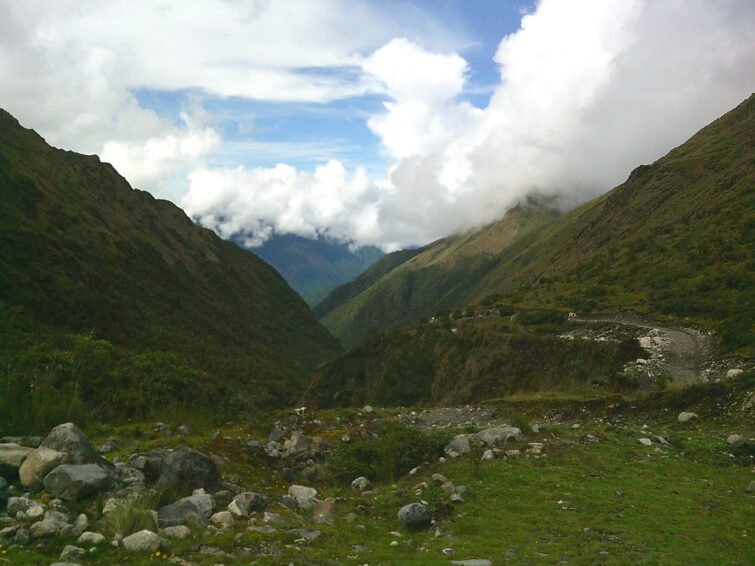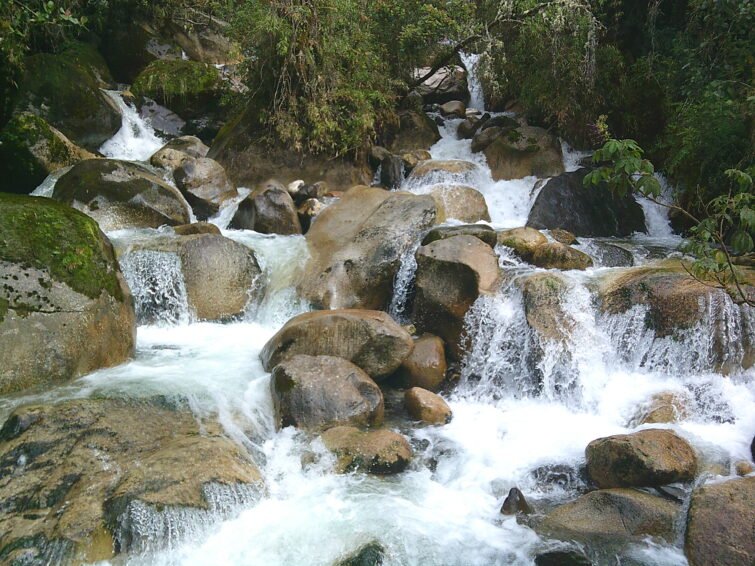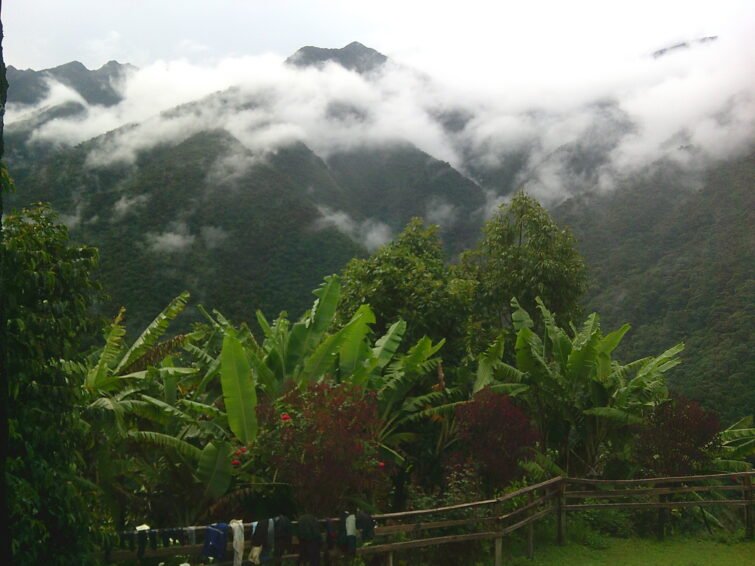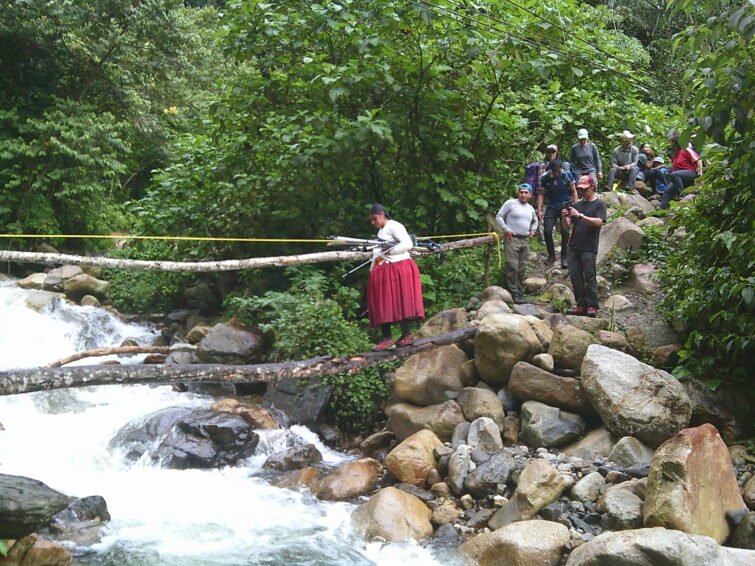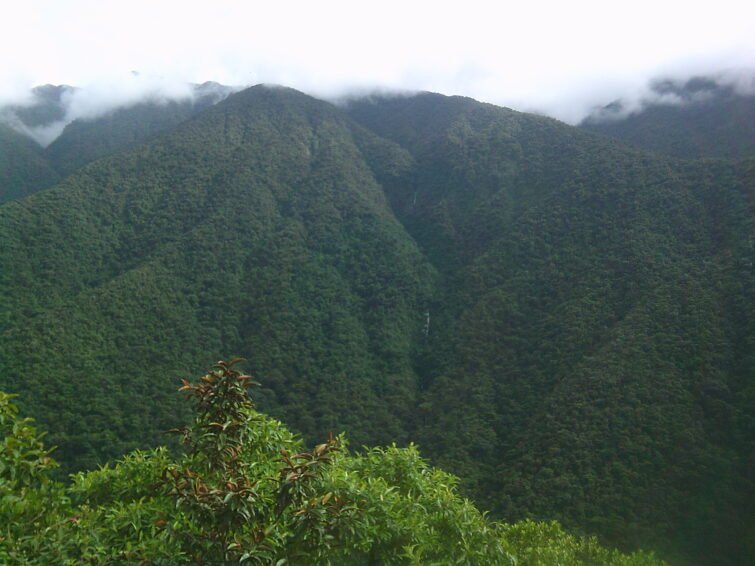Written by Gwen
Our most recent trek in El Choro was difficult on many levels. The first lesson we learned was that every single item counts when you’re carrying it as an attachment to your body. Many of us packed for comfort instead of practicality, and they had to learn the hard way. Our very sweet guides were able to take some of the weight off our shoulders, literally.
Another challenge that we faced was the rain. Every morning I woke up to wet socks and shoes. The trail we were walking was an ancient Inca path lined with smooth stones. “Slippery when wet.” We needed a couple hundred of those signs. Then we began dropping like flies. Some people were lucky enough to catch themselves at the last second, but I and many others have now obtained some pretty good-looking bruises. I remember waking up one morning in my damp sleeping bag, my entire body aching in pain from my sore muscles and bruises; I questioned if this experience was worth the discomfort. Now that the trek is over, I can confidently say that it was. I had exchanged my temporary pain for mental (and hopefully physical) growth. Although I couldn’t see it in the moment, the fact that most of us had pushed our bodies to places they had never been was an intense experience that allowed for self-growth. The immense discomfort we felt when waking up early, walking downhill or uphill for kilometers at a time, the blisters that festered on our feet, the wet socks and shoes, the aching shoulders and hips from the backpacks. This was also a mental battle, it took a lot to manually put one aching foot in front of the other. To wake up every morning, to have discipline. Throughout the trek, I saw people struggling. I am so proud that we all completed this, that we all put our game faces on and decided to tough it out. I am especially proud that no matter how uncomfortable we all felt, there wasn’t a single pessimistic attitude.
This trek was an amazing opportunity for the group to connect, as we cheered each other on through the hard parts (especially when crossing super sketchy bridges) and had amazing conversations. I think we all made the experience easier for each other. Shoutout to Mancala for being my podcast, she truly kept me going as she talked for about 3 hours about her past. I learned so many new things about everybody as we talked the kilometers away. The absolute serenity of nature was another thing that I loved about this trek. We passed through the most gorgeous mountains, waterfalls, and parts of the forest lined with beautiful plants such as birth of paradise and fragrant purple flowers. I was extremely happy to be able to see a blue morpho butterfly for the first time in my life.
Furthermore, having female guides on our trek was a big deal. Julia grew up in El Choro, and her backstory is very inspiring. She first started working in trekking as a chef for the hikers. And trust me, she was very good at that job, we all lost our minds at the pesto pasta. But Julia wanted to make trekking a bigger part of her life… she was enjoying all aspects, not just the cooking. She started her journey by summiting more and more mountains in Bolivia, even ones that included ice picking. Her career soared past the point of the chef as she began to gain traction on social media, for being not only a female mountain guide, but an Ajmara woman dressed in traditional Cholita clothing. When trekking, Julia shows representation for Andean women by wearing the complete Cholita attire, including the pollera, or large skirt, long braids, and manta, or large colorful satchel that carries on the back. Not that long ago, women, especially Cholitas or Andean women, were not allowed to work as mountain guides. Julia doing what she loves is pure resistance against that. She is also part of a group called “Cholitas Escaladoras,” which unites women all over the world who are fighting against patriarchy in the mountains. She and four other women in this group have a big goal of summiting Mount Everest within the coming year. There will also be a documentary film about this event, and it will have a tremendous impact on the feminist movement in Bolivia.
We faced many difficulties throughout the trek, but the knowledge, memories, and connections we gained were worth the physical turmoil.
